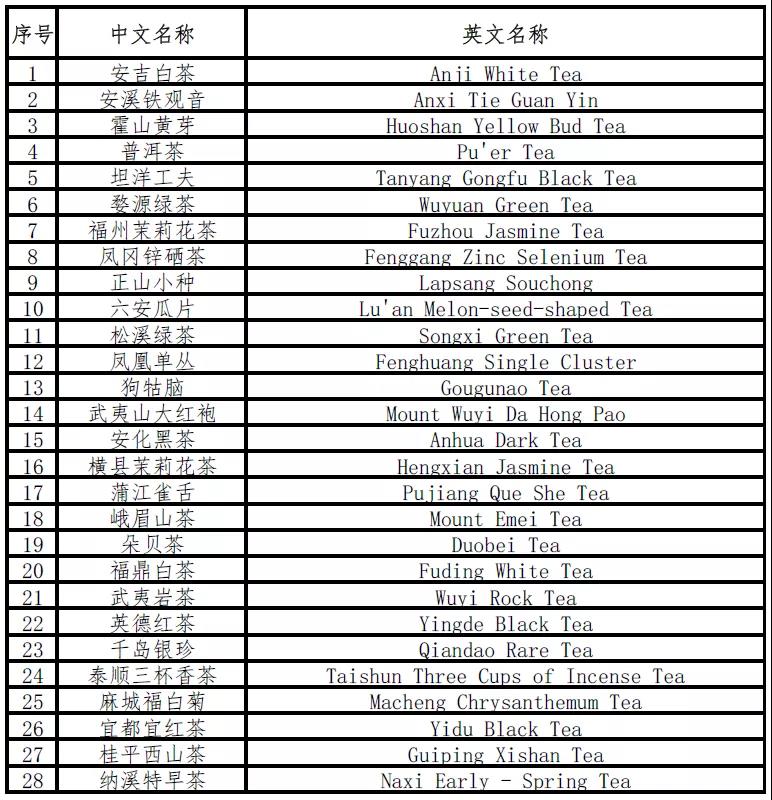
- HOME
- Market And Trade
- Market And Trade
EU-China: Council authorises signature of the agreement on geographical indications
 Image: 31 Tea Categories that involved in 100 Chinese products (GIs) will be protected in the EU
Image: 31 Tea Categories that involved in 100 Chinese products (GIs) will be protected in the EU
The Council today adopted decisions on the signature of the agreement between the European Union and the government of the People's Republic of China on geographical indications (GIs).
This is the first significant bilateral trade agreement signed between the EU and China.
It will ensure that 100 EU agri-food GIs ("Geographical Indications") such as Mozzarella di Bufala Campana, Languedoc wine, Polska Wódka or Elia Kalamatas get protection on the Chinese market. Likewise, 100 Chinese products will be protected in the EU, thereby ensuring mutual respect of the best of both agricultural traditions.
Four years after its entry into force, the scope of the agreement will expand to cover an additional 175 GI names from both sides. The agreement also includes a mechanism to add more geographical indications thereafter.
Background and process A GI is a distinctive sign used on products that have a specific geographic origin and possess qualities or a reputation that are due to that origin. The EU-China agreement will therefore provide an important protection of the products' intellectual property rights: it will safeguard against translation, transcription or transliteration, and against the use of the protected geographical indications accompanied by expressions such as "kind", "type", "style", "imitation" or the like in respect of a non-originating product.
GIs have also proven to be a useful marketing tool, helping to ensure higher and more stable export revenues for producers: according to a study commissioned by the Commission in 2013, a geographical indication product sells on average for more than twice the price of a similar non-geographical indication product. Moreover, China is a high-growth potential market for European food and drinks. This agreement will therefore benefit European producers and should be a boost to rural areas where these products are made.
The geographical indications will co-exist with the legitimate earlier trademarks of which the vast majority belong to the legitimate owners of Europe.
On 10 September 2010 the Council authorised the opening of negotiations on an agreement on GIs with China.
The date and place for the signature of the agreement has not been set yet. Once signed, the agreement will then need to receive the consent of the European Parliament before it can be concluded and enter into force.

Contact Us
Add: 414, Institute of Quality Standard and Testing Technology for Agro-products of Chinese Academy of Agricultural Sciences, No. 12, Zhongguancun South Street, Haidian District, Beijing, China
Email:typ@withworld.cn
Tel:+86 10 53647310